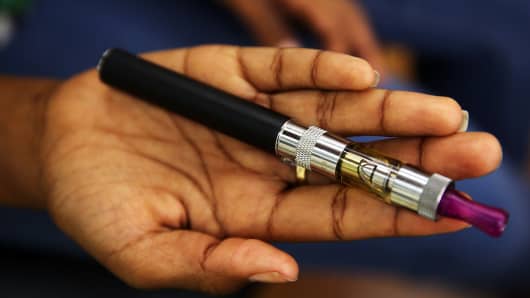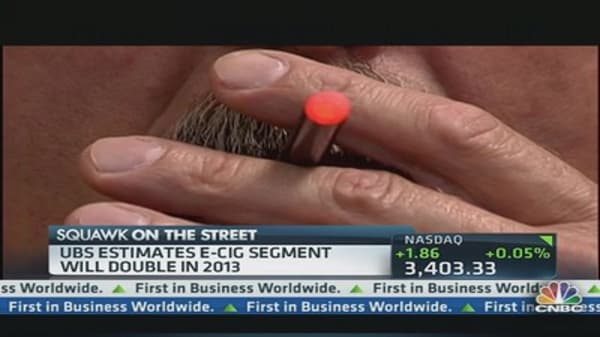A new study being published in the American Journal of Health Behavior suggests that electronic cigarettes might encourage hard-core tobacco puffers to significantly cut back on traditional cigarettes, even when they say they don't want to.
The pilot study found that of 28 adult smokers—none of whom were interested in quitting—25, or nearly 90 percent, reduced their use of tobacco cigarettes during a week in which they smoked e-cigarettes from leading maker NJOY.
Nearly one-third of those smokers cut their tobacco cigarette use in half, and four of the participants told researchers that they were smoking no traditional cigarettes at all by the end of the weeklong trial of NJOY Kings.
Overall, the mean reduction in participants' cigarettes smoked per day was 39 percent, according to the study.
The research report also found that the e-cig users' nicotine absorption was comparable to that with nicotine-replacement products approved by the Food and Drug Administration. The report noted that "these results suggest that this [NJOY] product delivered enough nicotine to suppress craving."
Further research needed
Mitchell Nides, who co-led the research with Scott Leischow of the Mayo Clinic, called the results "a very good signal to go forward" with more research on whether e-cigarettes can lead to long-term cessation of tobacco cigarette use.
He noted that the study did not follow up with to see if participants' tobacco use remained lower after the trial.
(Read more: E-Cig boom could be around the corner)
"They have tremendous potential as [a] smoking-cessation aid," said Nides, who has conducted studies on tobacco cessation for more than 25 years. He added that he was "surprised" by the four participants that stopped using cigarettes altogether.
"I think there's real potential for efficacy, with potentially few side effects," he said. "Obviously, more research is needed."






